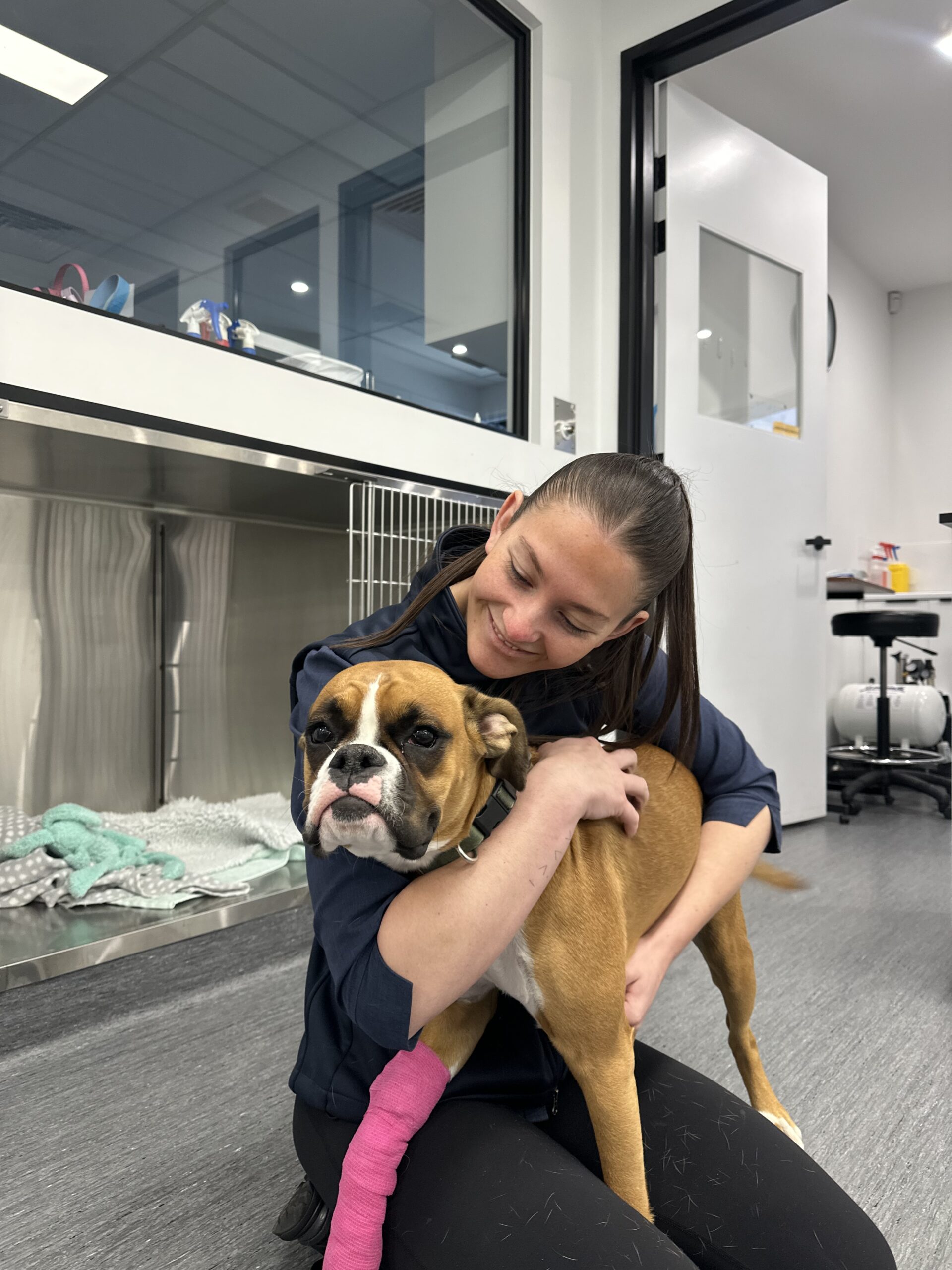Senior dogs with dental disease typically present to the vet with various signs and symptoms that indicate problems with their teeth and gums.
Common Signs and Symptoms of Dental Disease in Senior Dogs:
- Bad Breath (Halitosis):
- A strong, unpleasant odor coming from the mouth.
- Visible Tartar and Plaque:
- Yellow or brown buildup on the teeth.
- Red, Swollen, or Bleeding Gums:
- Inflammation and bleeding, especially during or after eating or chewing.
- Difficulty Eating or Chewing:
- Reluctance to eat hard food, dropping food, or chewing on one side of the mouth.
- Drooling:
- Excessive salivation, sometimes with blood.
- Loose or Missing Teeth:
- Teeth that are visibly loose or have fallen out.
- Pawing at the Mouth:
- Rubbing or scratching the mouth area due to discomfort or pain.
- Swelling Around the Mouth:
- Swelling in the face or under the jaw, which may indicate an abscess or infection.
Treatments for Dental Disease in Dogs:
- Professional Dog Dental Cleaning:
- Comprehensive cleaning performed under anesthesia to remove tartar and plaque above and below the gum line.
- Tooth Extractions:
- Removal of severely damaged or infected teeth that cannot be saved.
- Antibiotics:
- Medications to treat bacterial infections in the mouth, potentially if there is a gum infection or an abscess.
- Pain Management:
- Pain relief medications to manage discomfort associated with dental disease and procedures.
- Home Dental Care:
- Brushing: Regular brushing with dog-specific toothpaste to reduce plaque buildup.
- Dental Chews and Toys: Products designed to help clean teeth and reduce tartar.
- Water Additives and Oral Rinses: Solutions added to drinking water or applied directly to help maintain oral hygiene.
- Dietary Changes:
- Prescription dental diets or specially formulated foods that help reduce plaque and tartar.
Preventive and Supportive Care:
- Regular Veterinary Check-Ups: Routine dental exams during regular vet visits to monitor dental health.
- Routine Dental Cleanings: Professional cleanings as recommended by the vet to prevent severe dental disease.
- At-Home Dental Care: Consistent at-home care, including brushing and dental treats, to maintain oral hygiene.
- Monitoring for Early Signs: Early detection of dental problems by observing any changes in eating habits, breath odor, or gum appearance.
Effective treatment and preventive care are essential to manage dental disease in senior dogs, ensuring they maintain a good quality of life and overall health.
At Vets of Geelong we offer pet dentist services for both cats and dogs.
Learn more about our dog dentist services or book an appointment today.
